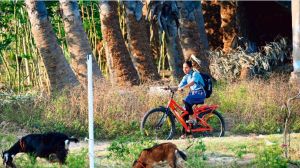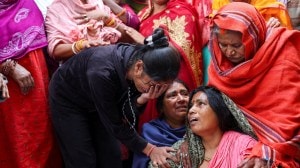Experts urge citizens to replace kerosene lamps with solar panels
To encourage the state’s rural populace to replace kerosene lamps with solar panels, industry experts converged on Friday to discuss the benefits of clean development mechanism.

To encourage the state’s rural populace to replace kerosene lamps with solar panels, industry experts converged on Friday to discuss the benefits of clean development mechanism.
Speaking at the seminar organised by Federation of Indian Chambers of Commerce and Industry and IBS, Professor Rakesh Goel of Business School of Institute of Chartered Financial Analysts of India, Lucknow branch, said: “ By eliminating approximately 100 million kerosene lamps used in rural India for lighting and by adopting solar panels to produce electricity, carbon dioxide emissions can be reduced and rural health improved simultaneously.”
Currently around 60 million households use 100 million kerosene lanterns. By adopting alternate sources of energy such as solar power and biogas, India can prevent 100 kg of carbon dioxide emissions per year. In order to spread awareness about the process of obtaining carbon credits and claiming them, lectures on Kyoto Protocol and clean development mechanisms were conducted during the seminar.
Clean development mechanisms, one of the three methods in the Kyoto Protocol, encourage cleaner development in growing countries and also brings an infusion of investments and technologies. “Considering the need to reduce pollution levels and save energy, we must opt
for clean development mechanisms and reap its benefits,” said Sudhir Kumar, Principal Secretary, NEDA, department of additional sources of energy.
Talking about recent advancements in the sustainable energy sector, Goel said the government could now avoid Rs 15,000 crore on subsidies every year due to the new initiatives undertaken by banks and solar energy firms such as Tata BP Solar. According to Goel, solar energy mechanisms were now available to the average villager at an economical rate. “The per unit cost of electricity is Rs 265, which can now be replaced with solar panels,” he said.
Solar energy being cleaner and greener will enable users to receive carbon credits — using the Kyoto Protocol — which can then be exchanged with developed countries.


- 01
- 02
- 03
- 04
- 05





























